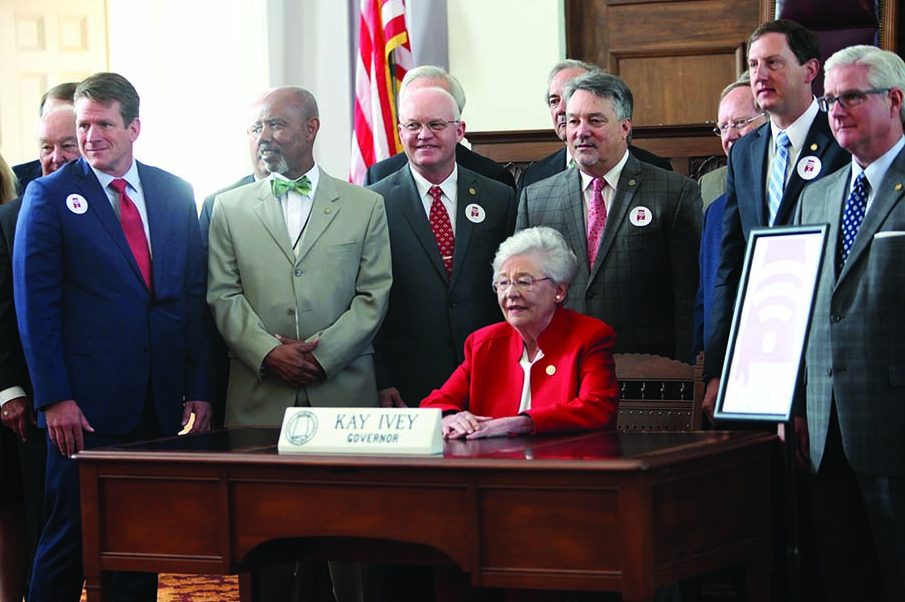
Alabama’s electric cooperatives are closer to being able to provide broadband access to their underserved members, following passage of two major pieces of legislation by the Legislature.
HB400, now the Broadband Using Electric Easements Accessibility Act by Rep. Randall Shedd, R-Fairview, will allow cooperatives to use their existing easements and infrastructure to deploy fiber to homes and puts limitations on any class action lawsuits.
SB90, the Broadband Accessibility Act by Sen. Clay Scofield, R-Guntersville, clarifies previous legislation by increasing the minimum service threshold and amends the amount of grants for specific projects.
Currently more than 840,000 persons in Alabama, almost 20 percent of the state’s population, have either no access or limits to broadband internet. The Alabama Rural Electric Association, which represents the 22 rural electric cooperatives in our state, worked diligently with 24 other organizations as part of the Alabama Rural Broadband Coalition to assure passage of the bills.
Not all Alabama cooperatives are planning to offer internet services at this time, but managers of at least two welcomed the legislation. “The great thing about the passage of HB400 and SB90 is that it gives us options,” says Tim Culpepper, CEO of Cullman Electric Cooperative, who says his cooperative is studying the economics of fiber deployment to see if it makes sense for its members.
“To fully take advantage of improvements in technology, we need to deploy fiber to our substations and to some of the breakers and switches on the system. This type of fiber-enabled new technology really helps with outage restoration and in efficiently operating the electrical system. Broadband may be a way to help finance the fiber deployment and at the same time provide high-speed internet services to our members.”
At Central Alabama Electric Cooperative, president and CEO Tom Stackhouse says the legislation provides “clarity and assurance” as the co-op moves forward to offer broadband services to its members, allowing it to “utilize facilities already in place and not be burdened with unknown cost.”
“CAEC has communication needs no different from the members we serve and only fiber can deliver the connectivity we need,” he adds. “As we deploy a fiber optic ring connecting all our own facilities, we will include the additional fiber that will eventually serve as the backbone to reach the entire area with fast broadband services.”
For now, two Alabama cooperatives, North Alabama EC and Tombigbee EC, offer broadband, but that number is expected to increase as more cooperatives get on board.
“Most everyone agrees there is a need for fast, reliable service across the whole state and country, but not everyone is in a position to do what it takes to make it happen, especially in the rural areas,” says Stackhouse. “As it must have been 80 years ago with electricity not being deployed into the same areas, the investment just doesn’t seem worth it. We beg to differ.
“The more we researched what it would take to deliver high quality, fast internet service into our rural areas, we realized, for the most part, it will not get done if CAEC is not very involved. We also realized that in our case there is no one else able or interested in getting to all the residents and businesses in the 3,600 square miles we serve.”




